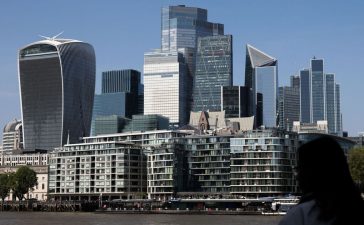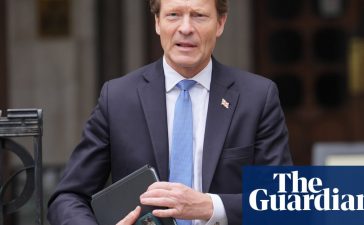Retail tycoon Sir Philip Green has lost a legal case against the UK government after complaining about being publicly named in the House of Lords as facing misconduct allegations.
The case, which was said to be a test of the concept of parliamentary privilege, was launched after Lord Hain announced in the House of Lords that Green had used the courts to obtain an interim injunction against the Telegraph to stop publication of the allegations during 2018.
Parliamentary privilege allows members to speak freely and their comments to be reported without the fear of being sued.
On Tuesday, the European court of human rights (ECHR) ruled against the Monaco-based businessman, who had alleged that the lack of controls on the use of parliamentary privilege breached his right to privacy.
Lawyers for Green, the former chair of Topshop owner Arcadia, had argued that the UK, as a member of the ECHR, must ensure that parliamentary privilege is not used to circumvent court orders.
In a complaint lodged in April 2019, Green’s lawyers told justices in Strasbourg that Hain’s comments in the Lords made his breach of confidence claim against the Telegraph futile, violating his right to a fair trial, and that the statement also breached his right to privacy.
Green’s lawyers challenged the absence of controls on the power of parliamentary privilege to reveal information covered by an injunction.
On Tuesday, the Strasbourg court said: “The court found that it should be left to the respondent state, and parliament in particular, to decide on the controls required to prevent parliamentary members from revealing information subject to privacy injunctions.
“To find otherwise would run contrary to the principle of the autonomy of parliament, which had already considered and rejected the need for further controls.”
Hain’s disclosure in the Lords came a day after the Telegraph ran a front-page story saying it was prevented from naming a “mystery businessman”, with the headline “The British #MeToo scandal which cannot be revealed”.
The newspaper later reported that Green allegedly groped a female executive and bought her silence with more than £1m, and referred to a black employee “throwing spears in the jungle” while drawing attention to his dreadlocks.
Green “categorically and wholly” denied being guilty of any “unlawful sexual or racist behaviour”, in a statement issued hours after the peer’s intervention in the House of Lords.
after newsletter promotion
He also previously accused the paper of “pursuing a vendetta” against him and his staff.
After the ECHR ruling on Tuesday about his naming of Green in parliament, Hain said: “I’m really pleased that the Strasbourg court defended parliamentary privilege and my right to have named Sir Philip.
“Instead of resorting to all sorts of specious legal twists and turns he should start behaving respectfully.”
Tuesday’s ruling was a “chamber judgment”, meaning that both sides now have three months within which they can ask for the case to be referred to the grand chamber of the court for a final ruling.
Green has been approached for comment.











